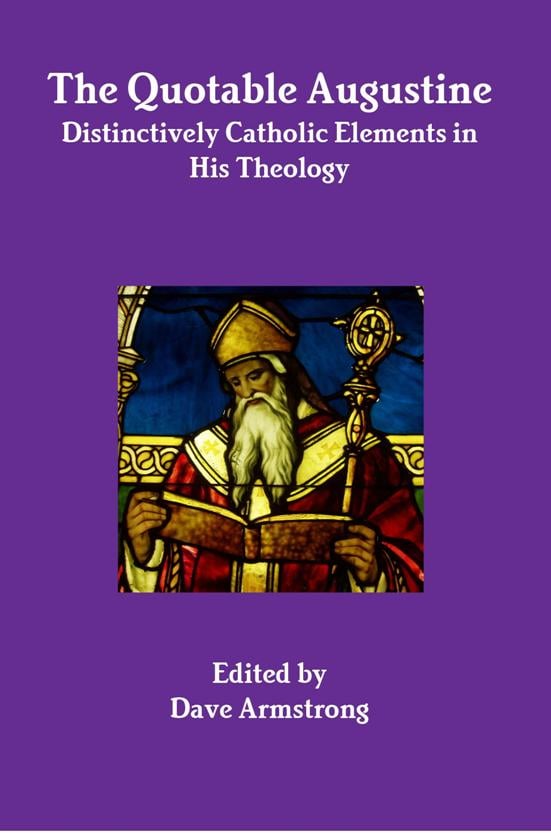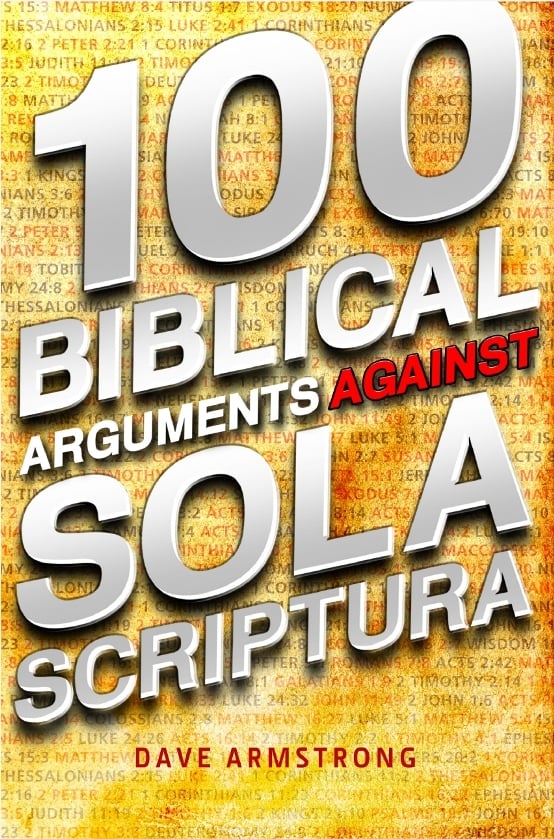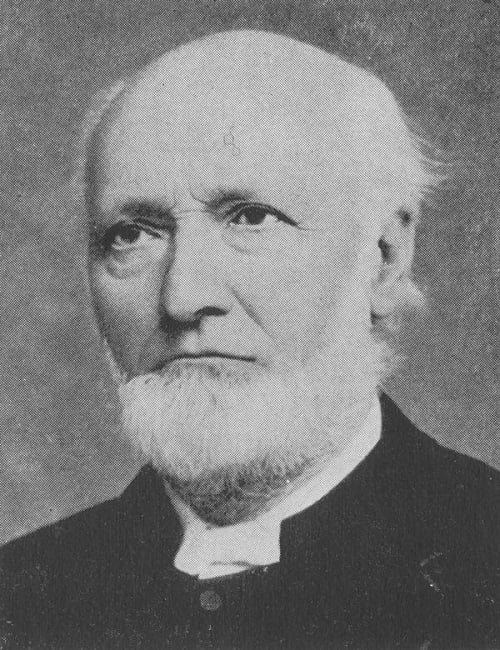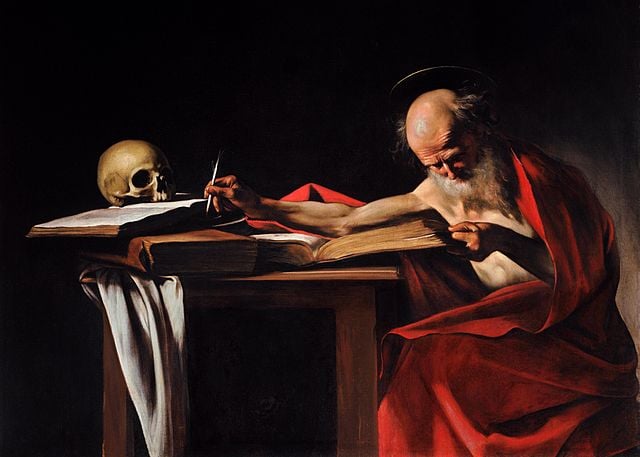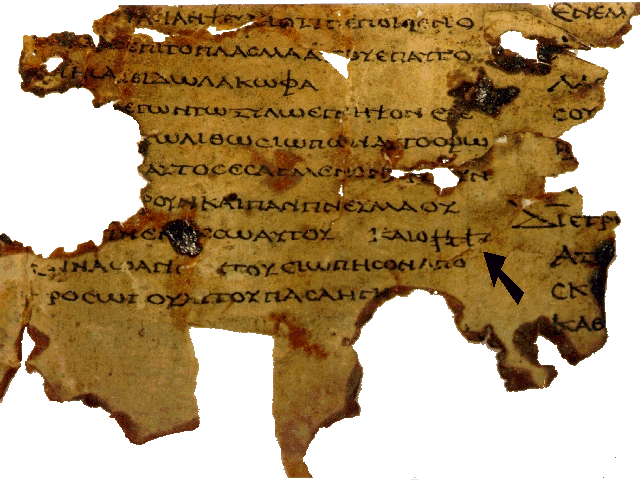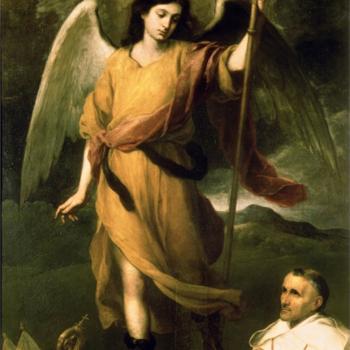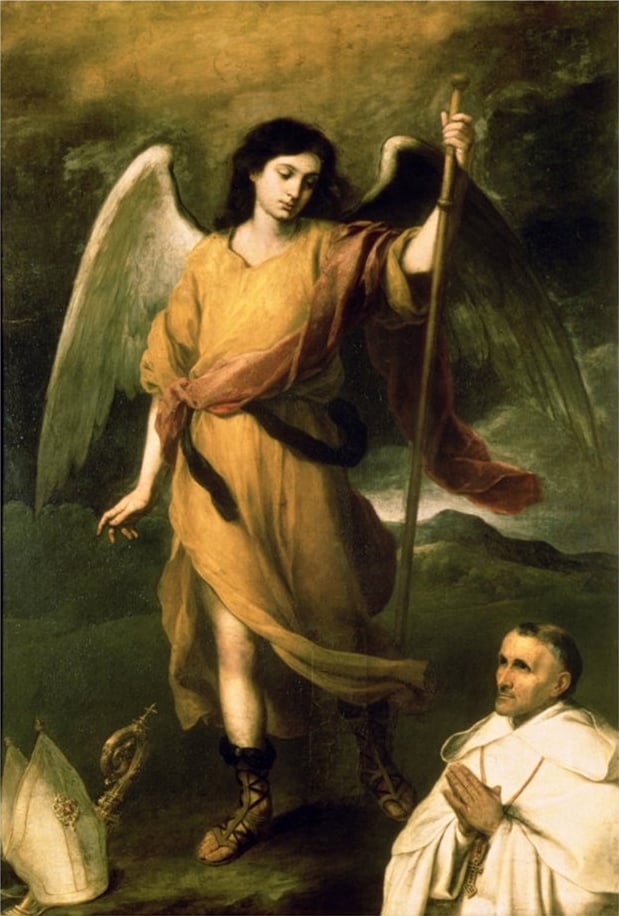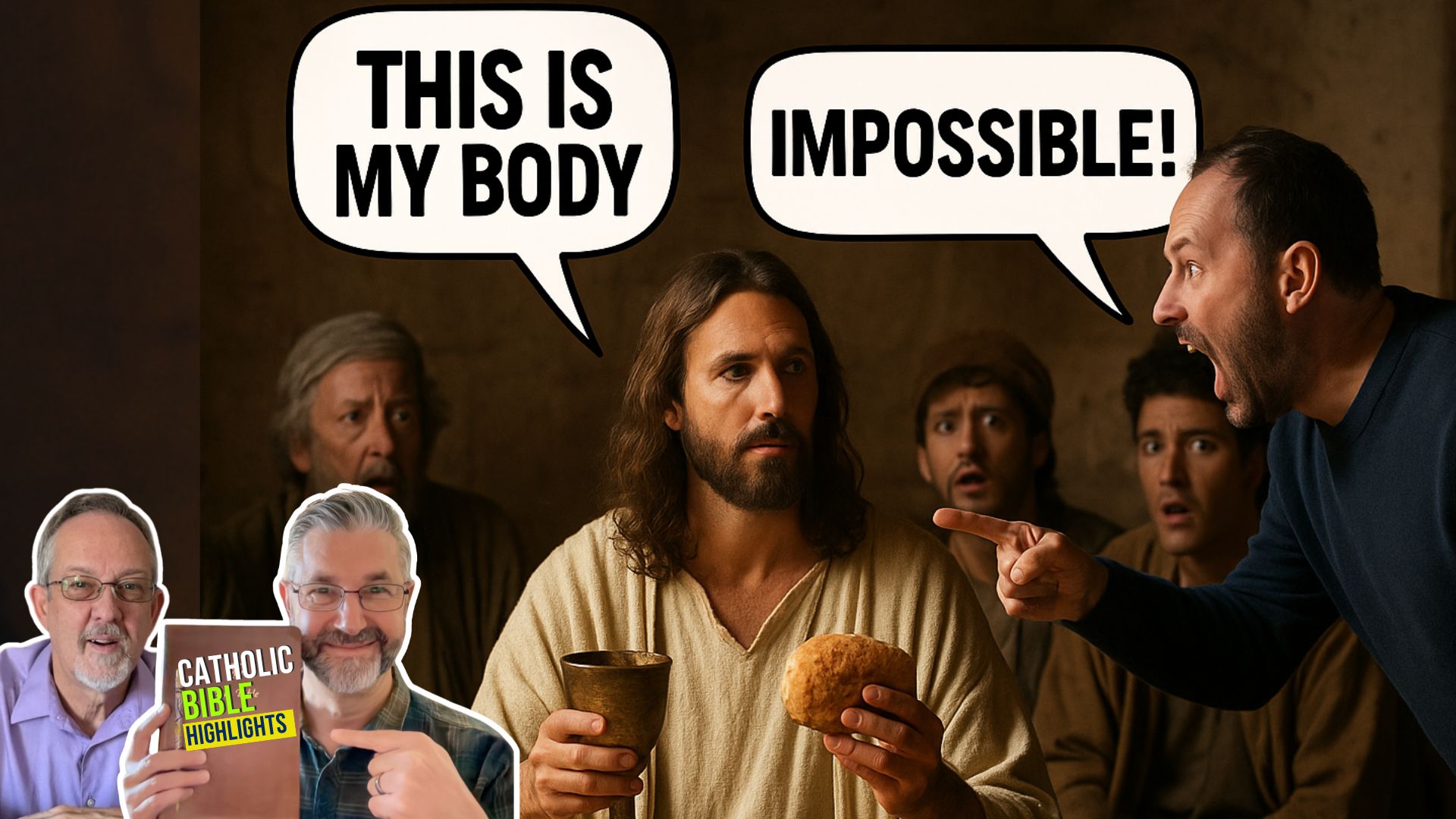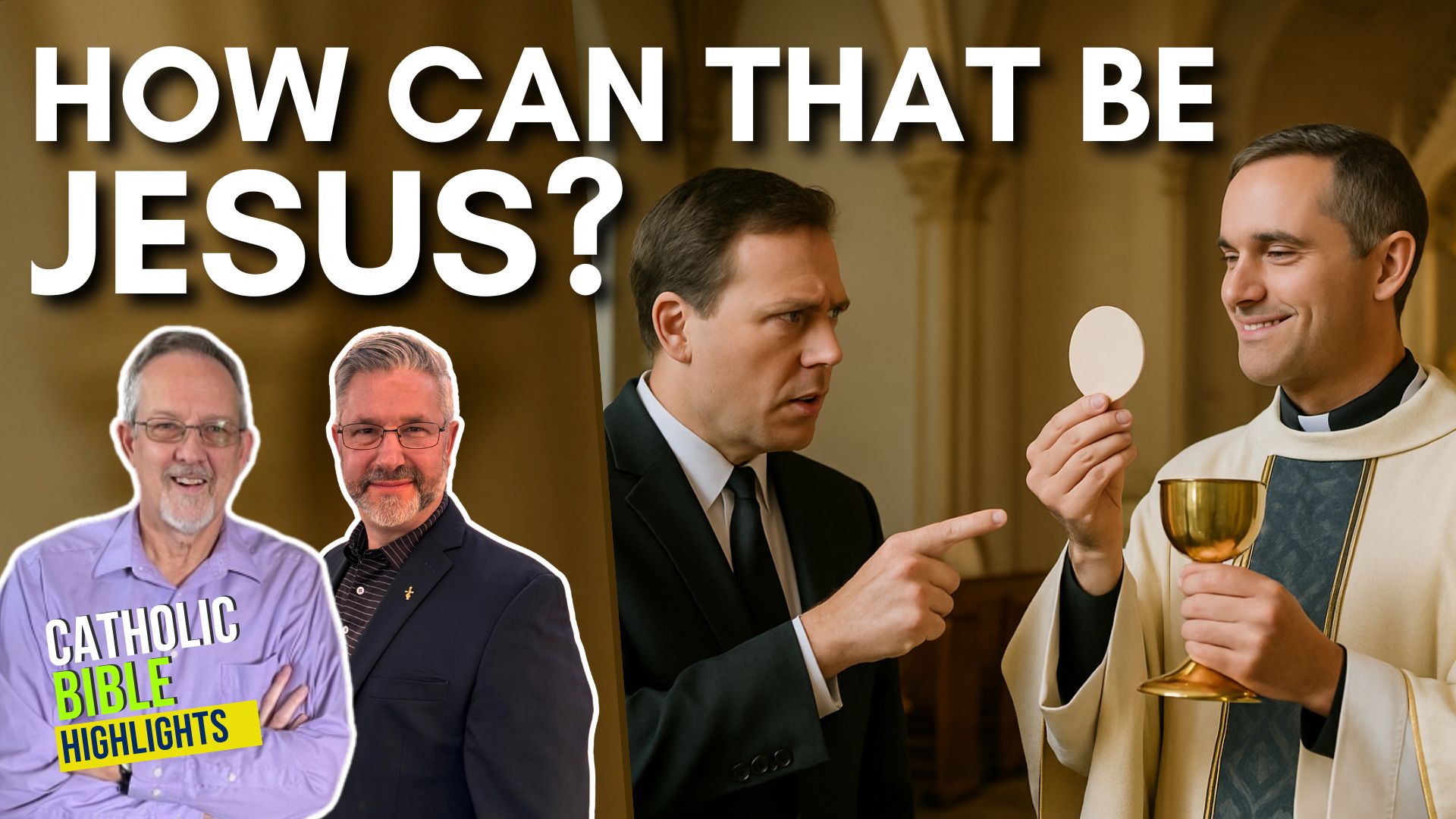Includes Anti-Infallibilist George Salmon; “Vicar of Christ”; “Holy Father”; “Supreme Pontiff”; Is Galileo a Catholic Difficulty?
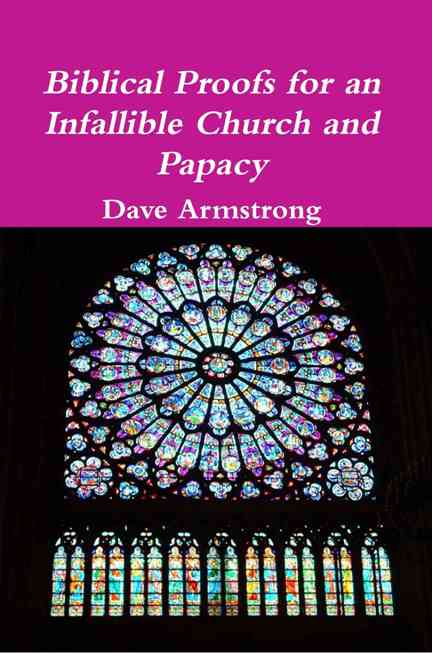
Norman L. Geisler (1932 – 2019) was an American evangelical Protestant theologian, philosopher, and apologist. He obtained an M.A. in theology from Wheaton College and a Ph.D. in philosophy from Loyola University, and made scholarly contributions to the subjects of classical Christian apologetics, systematic theology, philosophy of religion, Calvinism, Catholicism, biblical inerrancy, Bible difficulties, biblical miracles, the resurrection of Jesus, ethics, and other topics. He wrote or edited more 90 books and hundreds of articles.
Dr. Geisler was the Chairman of Philosophy of Religion at Trinity Evangelical Divinity School (1970–79) and Professor of Systematic Theology at Dallas Theological Seminary (1979–88) and a key figure in founding the Evangelical Philosophical Society. He also co-founded Southern Evangelical Seminary. He was known as an evangelical Thomist and considered himself a “moderate Calvinist”. He was not an anti-Catholic (i.e., he didn’t deny that Catholicism was fully a species of Christianity).
This is one of a series of comprehensive replies to his book, Roman Catholics and Evangelicals: Agreements and Differences (co-author, Ralph E. MacKenzie, graduate of Bethel Theological Seminary-West; Grand Rapids, Michigan: Baker Academic, 1995). It’s available online in a public domain version, which has no page numbers, so I will utilize page numbers from my paperback copy, for the sake of full reference. I consider it the best Protestant critique of Catholicism (especially in terms of biblical arguments) that I have ever found, from any time period. The arguments are, for the most part, impressively presented, thought-provoking, respectful, respectable, and worthy of serious consideration (which I’m now giving them).
I’ll be concentrating on the eight sections of Part Two: “Areas of Doctrinal Differences” (202 pages). These installments will be listed and linked on my Calvinism & General Protestantism web page, in section XVII: “Catholics and Protestants” (second from the end). Dr. Geisler’s and Ralph MacKenzie’s words will be in blue. My biblical citations are from RSV.
*****
The classic refutation of papal infallibility was written by George Salmon, The Infallibility of the Church (1914). It has never really been answered by the
Catholic church. (p. 206)
Salmon’s pathetic anti-Catholic screed, in fact, has been roundly refuted at least twice: first, by Rev. Dr. Jeremiah Murphy in The Irish Ecclesiastical Record (March / May / July / September / November 1901 and January / March 1902): a response (see the original sources) — which I’ve now transcribed almost in its totality — which was more than 73,000 words, or approximately 257 pages; secondly, by Bishop Basil Christopher Butler (1902-1986) in his book, The Church and Infallibility: A Reply to the Abridged ‘Salmon’ (1954, 230 pages). So that’s almost 500 pages of refutation, written 92 and 41 years prior to Geisler’s vacuous claim that no Catholic has ever “really” done it. Here’s what I have compiled:
Irish Ecclesiastical Record vs. Anti-Catholic George Salmon, Pt. 1 [3-10-23]
Irish Ecclesiastical Record vs. Anti-Catholic George Salmon, Pt. 2 . . . In Which Dr. Salmon Accuses Cardinal Newman of Lying Through His Teeth in His Essay on Development, & Dr. Murphy Magnificently Defends Infallibility and Doctrinal Development Against Gross Caricature [3-12-23]
Irish Ecclesiastical Record vs. Anti-Catholic George Salmon, Pt. 3 . . . In Which Our Sophist-Critic Massively Misrepresents Cardinal Newman and Utterly Misunderstands the Distinction Between Implicit and Explicit Faith [3-12-23]
*
Romans 9:1 I am speaking the truth in Christ, . . .*1 Corinthians 2:13 And we impart this in words not taught by human wisdom but taught by the Spirit, interpreting spiritual truths to those who possess the Spirit.*Titus 1:1 Paul, a servant of God and an apostle of Jesus Christ, to further the faith of God’s elect and their knowledge of the truth which accords with godliness,
2 Timothy 2:24-25 And the Lord’s servant must not be quarrelsome but kindly to every one, an apt teacher, forbearing, [25] correcting his opponents with gentleness. God may perhaps grant that they will repent and come to know the truth,
1 Timothy 3:15 . . . the household of God, which is the church of the living God, the pillar and bulwark of the truth.
Matthew 10:40 He who receives you receives me, and he who receives me receives him who sent me.
John 13:20 Truly, truly, I say to you, he who receives any one whom I send receives me; and he who receives me receives him who sent me.
*
The antipathy to the supposed anti-biblical title “Holy Father” is an equally silly and groundless argument. All one has to do to refute it is to note that there are such things as “holy men” referred to in the Bible. The writer of Hebrews calls the recipients of his epistle “holy brethren” (Heb 3:1). Peter refers to a “holy priesthood” (1 Pet 2:5) and “holy women” such as Sarah (1 Pet 3:5) and “holy prophets” (2 Pet 3:2; cf. Acts 3:21; Zechariah’s prophecy in Luke 1:70). John the Baptist is referred to as a “righteous and holy man” in Mark 6:20. Jesus refers to a “righteous man” in Matthew 10:41. Therefore, men can be called “holy” in Scripture. That solves half of this “pseudo-problem.” Can men also be called “father”? Of course they can:
Acts 7:2 And Stephen said: “Brethren and fathers, hear me. The God of glory appeared to our father Abraham, . . .”
Romans 4:12 . . . the father of the circumcised . . . our father Abraham . . .
Romans 4:16-17 . . . Abraham, for he is the father of us all, as it is written, “I have made you the father of many nations . . .” (cf. 9:10; Phil 2:22; Jas 2:21)
1 Corinthians 4:15 For though you have countless guides in Christ, you do not have many fathers. For I became your father in Christ Jesus through the gospel.
That solves the other half of the weak, insubstantial objection. If you can call a man “holy” and also (spiritual) “father”, then you can call a person both together (both being biblical), and the “problem” vanishes into thin air.
As for “Supreme Pontiff,” Peter even referred to the pagan emperor as “supreme” (1 Pet 2:13) and commanded believers to “Be subject for the Lord’s sake to every human institution” including “governors” (1 Pet 2:13-14). So Dr. Geisler would have us believe that we can regard the Roman emperor as “supreme” (since the Bible says so) but not the leader of the Christian Church? That’s odd.
“Pontiff” is derived from the Latin pontifex, which literally meant “bridgemaker” (pons = “bridge” and fex = “Maker”) and in its popular original meaning meant “waymaker” or “pathfinder.” So the pope is the “supreme bridgemaker or pathfinder.” I love it! What’s controversial about that, pray tell?
As Geisler noted in the same paragraph, Peter called himself “a fellow elder” (1 Pet 5:1). That sounds like “bridgemaker” to me, so again, it’s much ado about nothing: cheap polemics in order to score supposed debating points and “zingers” against the Catholic Church. Jesus washed the feet of His disciples, called them “friends” and said, “the Son of man also came not to be served but to serve” (Mk 10:45) and “let the greatest among you become as the youngest, and the leader as one who serves” (Lk 22:26) and:
Mark 10:42-44 “. . . You know that those who are supposed to rule over the Gentiles lord it over them, and their great men exercise authority over them. [43] But it shall not be so among you; but whoever would be great among you must be your servant, [44] and whoever would be first among you must be slave of all.”
Does that mean that Jesus wasn’t the Lord and their master, or even lesser than His own disciples? No, of course not. He was humble and served and ultimately died for us. Popes lead through service as well. St. Paul echoed this: “Not that we lord it over your faith; we work with you for your joy, . . .” (2 Cor 1:24) and referred to his “fellow workers” in ministry several times (Rom 16:3, 9, 21; 2 Cor 8:23; Phil 2:25; 4:3; Col 4:11; Phlm 1:24).
He even stated that “we are God’s fellow workers” (1 Cor 3:9). Mark (thought to be heavily influenced by Peter) noted that “the Lord worked with” the disciples as they went out and preached following Jesus’ resurrection (Mk 16:20). Nothing here is in the least unbiblical. But Dr. Geisler, strangely enough, contradicts several biblical themes or motifs in his “contra-papal” assertions.
There is a New Testament revelatory function like that of the Old, but it is in the New Testament “apostles and prophets” (cf. Eph. 2:20; 3:5) and it ceased when
they died. (p. 213)
Ah, but there is no indication in the New Testament that the office of prophet or the practice of prophesying ever ceases. If there were, I assume Dr. Geisler would produce that evidence, but as we see, he does not. See my article, Papacy & OT Infallible Prophets Analogy (vs. Gavin Ortlund) [3-14-24]. Jesus called John the Baptist “more than a prophet” (Luke 7:26) and stated, “among those born of women none is greater than John; yet he who is least in the kingdom of God is greater than he” (Luke 7:28). Therefore, it is not in the least implausible that one man: the pope, could be infallible, which is a far lesser gift than the inspiration and direct revelation from God exhibited by the prophets.
Briefly put, then, the analogical argument is: “If prophets spoke with inspiration, then popes can plausibly speak infallibly, since the latter is a far less extraordinary gift than the former.” Or, from a different angle: “If those with lesser gifts can do the great thing (inspired utterance), then those with greater gifts can certainly do the lesser thing (infallible utterance).” St. Paul casually assumes that the office of prophet or the gift of prophecy, were perpetual in the Church:
Romans 12:6 Having gifts that differ according to the grace given to us, let us use them: if prophecy, in proportion to our faith;
1 Corinthians 12:7-11 To each is given the manifestation of the Spirit for the common good. [8] To one is given through the Spirit the utterance of wisdom, and to another the utterance of knowledge according to the same Spirit, [9] to another faith by the same Spirit, to another gifts of healing by the one Spirit, [10] to another the working of miracles, to another prophecy, to another the ability to distinguish between spirits, to another various kinds of tongues, to another the interpretation of tongues. [11] All these are inspired by one and the same Spirit, who apportions to each one individually as he wills.
1 Corinthians 14:1, 3-5 Make love your aim, and earnestly desire the spiritual gifts, especially that you may prophesy. . . . [3] On the other hand, he who prophesies speaks to men for their upbuilding and encouragement and consolation. [4] He who speaks in a tongue edifies himself, but he who prophesies edifies the church. [5] Now I want you all to speak in tongues, but even more to prophesy. He who prophesies is greater than he who speaks in tongues, unless some one interprets, so that the church may be edified. (see many more)
Perhaps the greatest embarrassment to the self claimed infallible church is its fallible judgment about Galileo Galilei (A.D. 1564-1642). Threatened by the implications of Galileo’s discovery, the Catholic church sided with the scientifically outdated Ptolemaic geocentric universe. (p. 218)
This is a red herring. The basic retort, which is decisive, was provided by the Catholic Encyclopedia in 1909 (“Galileo Galilei”):
Can it be said that either Paul V or Urban VIII so committed himself to the doctrine of geocentricism as to impose it upon the Church as an article of faith, and so to teach as pope what is now acknowledged to be untrue? That both these pontiffs were convinced anti-Copernicans cannot be doubted, nor that they believed the Copernican system to be unscriptural and desired its suppression. The question is, however, whether either of them condemned the doctrine ex cathedra. This, it is clear, they never did.
This is a fact, determined by the methods of historiography like any other purported historical fact. Dr. Geisler alludes to this article and partially cites it on page 219. He puts down some replies from Catholics, including one that noted that no question of faith or morals (the standard overarching categories for infallible pronouncements) was involved with Galileo. But this isn’t good enough for Geisler, so he protests:
None of these ingenious solutions is very convincing, having all the earmarks of after-the-fact tinkering with the pronouncements that resulted from this episode. . . . At any rate, the pope’s condemnation of Galileo only undermines the alleged infallibility of the Catholic church. Catholic apologists can always invoke their apologetic warehouse-that the pope was not really speaking infallibly on that occasion-but constant appeal to this non-verifiable distinction only weakens their case for infallibility. (pp. 219-220)
Well, this is fascinating, and yet another self-contradiction, since on page 203, Geisler, in his first sentence of his Chapter 11 (“Infallibility”) correctly states:
According to Roman Catholic dogma the teaching magisterium is infallible when officially defining faith and morals for believers.
Okay; so how is it that on page 219, after citing a Catholic source noting that the Galileo affair involved no matter of faith or morals, Geisler disagreed with his earlier pronouncement and claimed that it isn’t “very convincing” and is “after-the-fact tinkering”? Either he is correct about how the Catholic Church defines infallible utterances or not. I say he is correct on page 203 and contradictorily incorrect, concerning the same issue on page 219.
On page 204, Geisler even cited the portion of Vatican I in 1870 where papal infallibility was defined, and included in that is the statement explaining how when the pope “explains a doctrine of faith or morals to be held by the Universal Church” he “operates with that infallibility . . .” It mentions “faith and morals” a second time in his own quote, too. The issues in the Galileo affair had nothing to do either with infallibility or the Catholic magisterium. They were about disputes regarding scientific evidences and method.
Nothing has changed since that time, 400 years ago. In his 2015 encyclical, Laudato si, Pope Francis wrote: “Here I would state once more that the Church does not presume to settle scientific questions . . . But I am concerned to encourage an honest and open debate . . .” (188) Geisler appears to again agree with the definition of infallibility according to Catholic teaching on page 204:
Roman Catholic scholars have expounded significant qualifications on the doctrine of papal infallibility. First, they acknowledge that the pope is not
infallible in everything he teaches but only when he speaks ex cathedra, as the official interpreter of faith and morals. Avery Dulles, an authority on
Catholic dogma, states that, for a pronouncement to be ex cathedra, it must: . . .
3. determine a doctrine of faith and morals, i.e., a doctrine expressing divine revelation;
He reiterates again on the same page:
Second, the pope is not infallible when pronouncing on matters that do not pertain to “faith and morals.” On these matters he may be as fallible as the next person.
He refers again to “faith and morals” on pp. 211-212 and a few more times as well. So which is it? If Geisler is to be trusted for accurately representing our view of the parameters of infallibility, then we must go with his earlier statements in this chapter. But he contradicts them later in the chapter, when it suits his contra-Catholic polemical interests. He can’t have it both ways. If he is correct later in the chapter, then he would be incorrect at the beginning, according to logic. But in fact he is correct in the beginning, and so he speaks falsehood at the end.
In any event, the Galileo pronouncements clearly do not fall under the criteria for infallible pronouncements. The whole canard that they supposedly did is basked in ignorance or (as here) self-contradiction in the zeal to refute the Big Bad Boogeyman of the Catholic Church. For further reading on this fascinating topic (e.g., St. Robert Bellarmine had a better understanding of scientific method than Galileo did), see:




